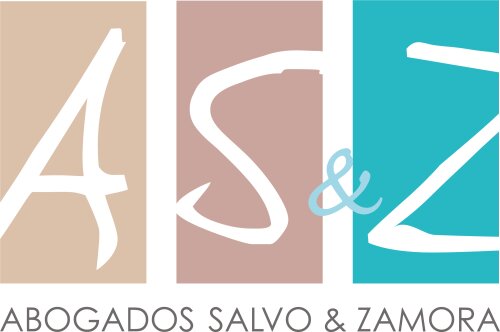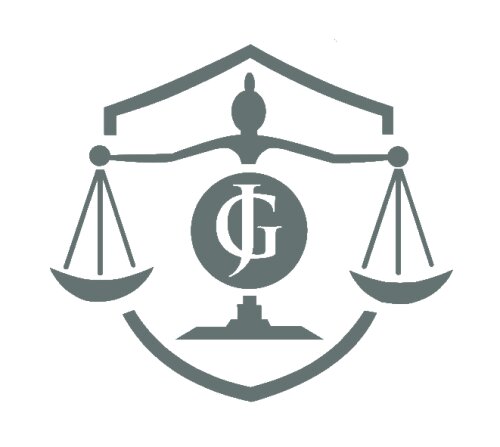Best New Business Formation Lawyers in Chile
Share your needs with us, get contacted by law firms.
Free. Takes 2 min.
Or refine your search by selecting a city:
List of the best lawyers in Chile
About New Business Formation Law in Chile
New Business Formation in Chile refers to the legal process of establishing a new business entity in the country. This can include registering the business, obtaining necessary permits and licenses, and complying with local regulations. Chile has a well-defined legal framework for new businesses, which makes it a favorable environment for entrepreneurs looking to start their own ventures.
Why You May Need a Lawyer
While starting a new business in Chile can be relatively straightforward, there are certain situations where legal expertise may be necessary. For example, if you are unsure about which business structure to choose (sole proprietorship, corporation, partnership, etc.), or if you need help understanding the tax implications of your business, a lawyer can provide valuable guidance and support. Additionally, if you encounter any legal issues during the formation process, such as disputes with partners or shareholders, a lawyer can help you navigate the complexities of Chilean business law.
Local Laws Overview
When forming a new business in Chile, it is important to be aware of the following key aspects of local laws:
- Business Structure: Choose the right legal structure for your business, such as a Sociedad Anónima (corporation) or Sociedad de Responsabilidad Limitada (limited liability company).
- Registration: Register your business with the Chilean Internal Revenue Service (Servicio de Impuestos Internos) and obtain a tax identification number (RUT).
- Licenses and Permits: Obtain any necessary licenses or permits required to operate your business legally in Chile.
- Labor Laws: Familiarize yourself with Chilean labor laws, including regulations on hiring employees, wages, and working conditions.
Frequently Asked Questions
Q: What is the most common business structure in Chile?
A: The most common business structure in Chile is the Sociedad de Responsabilidad Limitada (limited liability company), which offers a good balance between liability protection and administrative simplicity.
Q: How long does it take to register a new business in Chile?
A: The registration process for a new business in Chile typically takes around two weeks, depending on the complexity of the business structure and the completeness of the documentation provided.
Q: Do I need a lawyer to start a business in Chile?
A: While it is not mandatory to hire a lawyer when starting a business in Chile, legal expertise can be valuable in navigating complex legal requirements and ensuring compliance with local regulations.
Q: What taxes do I need to pay as a new business owner in Chile?
A: New business owners in Chile are subject to corporate income tax, value-added tax (VAT), and personal income tax on their profits. It is important to consult with a tax advisor to understand your specific tax obligations.
Q: Are there any incentives for new businesses in Chile?
A: Yes, Chile offers various incentives for new businesses, including tax breaks, grants, and subsidies for certain industries or regions. It is recommended to research available incentives and consult with a lawyer to take advantage of these opportunities.
Q: What is the minimum capital requirement to start a business in Chile?
A: There is no minimum capital requirement to start a business in Chile, but having sufficient capital is essential to cover initial expenses and ensure the financial stability of your business.
Q: Can foreigners start a business in Chile?
A: Yes, foreigners can start a business in Chile and own 100% of the shares in certain industries. However, it is important to obtain the necessary visas and permits to conduct business legally in the country.
Q: How can I protect my intellectual property rights in Chile?
A: To protect your intellectual property rights in Chile, you can register trademarks, patents, and copyrights with the Chilean National Institute of Industrial Property (INAPI). Consulting with a lawyer specializing in intellectual property can help you navigate this process.
Q: What business licenses and permits do I need in Chile?
A: The licenses and permits required to operate a business in Chile vary depending on the industry and location. It is essential to research and obtain the necessary licenses from the relevant authorities to avoid legal issues.
Q: How can I dissolve a business in Chile?
A: If you decide to dissolve your business in Chile, you must follow the legal procedures outlined in the Chilean Commercial Code. Consulting with a lawyer can help you navigate the dissolution process and avoid any potential liabilities.
Additional Resources
For more information on New Business Formation in Chile, you can refer to the following resources:
- Chilean Internal Revenue Service (Servicio de Impuestos Internos) website
- Chilean National Institute of Industrial Property (INAPI) website
- Chilean Ministry of Economy, Development, and Tourism website
Next Steps
If you require legal assistance in New Business Formation in Chile, it is advisable to consult with a qualified lawyer who specializes in Chilean business law. They can provide personalized advice and support to help you navigate the legal complexities of starting a new business in Chile.
Lawzana helps you find the best lawyers and law firms in Chile through a curated and pre-screened list of qualified legal professionals. Our platform offers rankings and detailed profiles of attorneys and law firms, allowing you to compare based on practice areas, including New Business Formation, experience, and client feedback.
Each profile includes a description of the firm's areas of practice, client reviews, team members and partners, year of establishment, spoken languages, office locations, contact information, social media presence, and any published articles or resources. Most firms on our platform speak English and are experienced in both local and international legal matters.
Get a quote from top-rated law firms in Chile — quickly, securely, and without unnecessary hassle.
Disclaimer:
The information provided on this page is for general informational purposes only and does not constitute legal advice. While we strive to ensure the accuracy and relevance of the content, legal information may change over time, and interpretations of the law can vary. You should always consult with a qualified legal professional for advice specific to your situation.
We disclaim all liability for actions taken or not taken based on the content of this page. If you believe any information is incorrect or outdated, please contact us, and we will review and update it where appropriate.
Browse new business formation law firms by city in Chile
Refine your search by selecting a city.
















